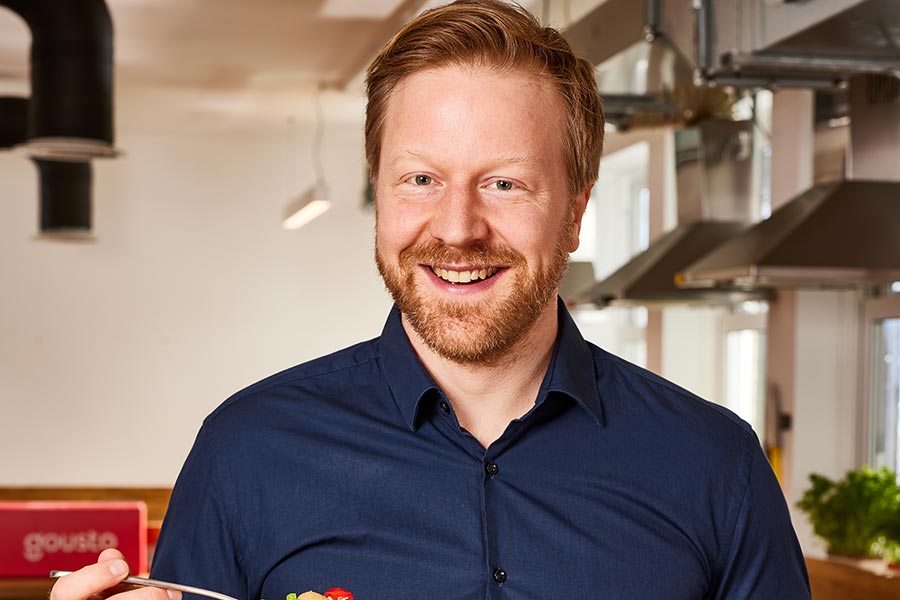In a world where corporate clothing has pivoted from grey slacks to Silicon Valley-approved hoodies, how does one dress for work? By embracing personality, business amplifier Jennie McGinn tells Kate Demolder
Jennie McGinn often finds herself defending the subject of fashion to friends who consider it beneath the dignity of a serious person.
“I think it’s so easy,” she smiles over Zoom, wearing a fuchsia sweater and dangling pearl earrings, “to just think that it’s frivolous and consumerist to be overly invested in your appearance.
“But it’s a style of communication. And sometimes that does more work on your behalf than emailing and sending your CV.”
McGinn, who describes herself as a “business amplifier”, is a maximalist by any metric.
One of six girls, her former work spans jewellery stores, a stint as head of commerce at Lifestyle Sports and some time in the C-suite.
She also counts leopard print as a neutral.
“How you dress yourself sets the tone, sets the mood, sets the energy,” she says.
“And I’m aware of how rudimentary it sounds, but wearing what you love and what makes you feel good can be really, really strategic.
“It can say more about you than you ever would with your own mouth.”
McGinn’s background is entrepreneurial. You might remember her first venture, Opsh, the 2010s darling of e-commerce that she founded with her sisters.
Formerly Prowlster, Opsh was a disruptive site that allowed consumers to shop the high street by using one account and payment method.
The concept, which caught the eye of Brett Palos, then director of the Arcadia Group and Philip Green’s stepson, among others, was relatively revolutionary.
It attempted to jump-start the e-comm revolution at a time that was just that bit too early to really thrive.
“We had government support, we had investors, we employed a lot of people,” she says. “And we brought it to a really incredible place on limited cash and limited reach.
“Because even though it looked like we all worked in fashion, we never actually did.
“We didn’t have those contacts or those connections to retailers. We didn’t have any experience in buying or merchandising, or anything like that. It was just relentless, consistent cold calling until we got there.”
Eventually, they did get there. Until they didn’t.
“It was peak recession, and we couldn’t raise the second round of investment,” she says. “We never actually got a ‘no’. It was lots of ‘not right now’ and ‘come back to us in six months’.
“At the time, there was a lack of understanding of how important digital and e-commerce were, and I often still think today about how it would have been great. It obviously wasn’t meant to be but, boy, did we learn a lot.”
Today, as a result of Opsh’s soaring highs and eventual low, McGinn’s relationship to failure has changed utterly.
“It was one of the most spectacular failures, because it was so public and all-consuming, and so much of our family was involved in it. And yet, we survived,” she says.
“I can now say I’ve been through the worst thing that could happen in business and entrepreneurship, and I know I can keep going.
“You pick yourself up, you dust yourself off, and you get going again.
“It’s actually liberating, because it just makes you realise that life is too short to get stuck in one part of the process.
“You have to throw yourself into the next thing, and out of your comfort zone once more.”
The comfort zone is something McGinn regularly brushes up against in her work.
In 2023 she founded Sister, a video-led social advertising agency.
She also gives talks and workshops on topics such as building a personal brand online, utilising social media to stand out and how professionals can highlight their best qualities through the clothes they wear.
Her work centres on pushing people, particularly women, to step into the role they’ve often dreamt of in private.
To achieve this, she believes in the ‘red sneakers effect’ — the idea that individuals who exhibit nonconfirming behaviours in a professional setting are often perceived as having higher status and competence.
“At this stage in my career, I’m not attracted to a job, role or project where I feel I have to dress like a completely different version of me,” she says.
“I want to be able to dress the way that I want to be able to dress. And if working in your environment is going to minimise that in some way, then that is not the role for you.
“When I interview for a job, I’m not just selling my skills, I’m selling my edge — why I’m a bit different.
“I’m selling my confidence, my ability to represent the company and the unspoken and the unacknowledged soft skill in the room.
“I admire when I see someone wearing something with a bit of personality; it shows me they’re competent, organised and have something more to share than just what’s on their CV.”
For women, the bar is high and the possibility of failure great when it comes to the sartorial.
Much of McGinn’s work highlights the fact that women remain disadvantaged in the corporate world because of the persistent perception that what makes women different also makes them deficient.
After embracing many roles in social media, advertising and communications, McGinn says she is a “jack of all trades”, adding that it is a “privilege” to have such a diverse CV.
She insists upon two things for those who feel they’ve lost their way.
“The first thing that I will say is if you don’t back yourself, nobody else will,” she says.
“If you don’t put yourself forward, the cavalry is not going to arrive to do it on your behalf. “You have to be your biggest fan, your biggest cheerleader [and] your number one supporter.

“And you might not feel like that all the time, but if you don’t do that for yourself, how does anybody know what you want, what you want to go for, what you want to achieve or what you’re struggling with?
“How would people even know to help you if you are not advocating for yourself first and foremost?
“When you do start advocating for yourself, you start creating the spaces, the opportunities, the moments, the conversations and things will start to galvanise around you to help propel you forward.” She pauses, before reaching her final thought.
“If you feel you’ve reached the pinnacle of where you go, it’s time to move,” she says.
“Don’t just sit there plateauing. It is time to move if you’ve learned all that you can and if you’ve given all that you can. And if you are not getting to the next stage, be gone. Be out of there, like a shot.
“And I say that as a person with the responsibilities of a mortgage and kids. I do understand we can be entrenched in things, but if you’ve done all you can do… create the space for yourself to move on to the next thing. Life is too short, and there’s no time to waste.”










